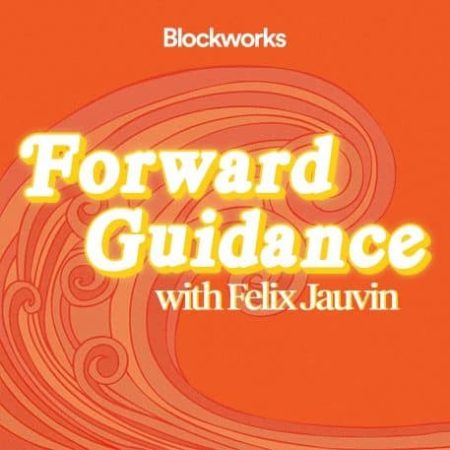EFCC Warns of Crypto Fraud Risks, Calls for Regulatory Framework in Nigeria
Nigeria’s Financial Watchdog Urges Proper Regulation to Protect Investors and the Financial System
In a significant move that underscores the growing importance of digital assets in Africa’s largest economy, the Economic and Financial Crimes Commission (EFCC) of Nigeria has issued a stark warning about the vulnerabilities facing cryptocurrency investors in an unregulated market. During a high-level meeting with blockchain industry representatives, EFCC Executive Chairman Ola Olukoyede emphasized that Nigeria’s financial ecosystem faces potential large-scale abuse if cryptocurrency activities continue without proper regulatory oversight.
The warning comes at a critical juncture when Nigeria is experiencing a surge in cryptocurrency adoption, particularly among its vast youth population seeking alternative investment opportunities amid economic uncertainties. Speaking through his Chief of Staff, Michael Nze, at the EFCC headquarters in Abuja, Olukoyede addressed members of the Blockchain Technology Association of Nigeria (SiBAN), led by President Obinna Iwuno, highlighting both the immense potential and significant risks that cryptocurrency presents to the nation’s financial stability.
“Cryptocurrency represents the engine of global innovation and wealth creation in today’s digital economy,” Olukoyede stated, drawing a parallel to Nigeria’s traditional economic backbone. “It’s the new oil, with tremendous wealth creation opportunities. However, in the wrong hands, this powerful technology can transform into a dangerous tool for terrorism financing, fraud, and money laundering if left unchecked.” This balanced perspective acknowledges cryptocurrency’s dual nature as both an innovative financial instrument and a potential vehicle for illicit activities when operating without proper safeguards.
Navigating the Thin Line Between Legitimate Crypto Operations and Fraudulent Schemes
The EFCC Chairman’s comments revealed a concerning trend: the increasing difficulty in distinguishing between legitimate cryptocurrency operations and sophisticated fraudulent schemes. According to Olukoyede, this ambiguity creates a dangerous environment where even experienced investors may fall victim to deceptive practices. “There is a disconcertingly thin line between genuine crypto operators and fraudsters,” he observed. “More troubling is our discovery that politically exposed persons and seemingly legitimate business entities are exploiting cryptocurrency networks to launder illicit funds.”
This revelation points to a sophisticated evolution in financial crimes, where bad actors leverage the pseudonymous nature of blockchain technology to obscure illegal transactions. For Nigeria’s nascent crypto ecosystem, this presents a complex challenge: how to implement effective regulatory frameworks that protect investors and the broader financial system without hampering technological innovation. The EFCC emphasized that investor education represents a critical component of any comprehensive solution, urging SiBAN to intensify awareness campaigns targeted at newcomers to the cryptocurrency space who might be particularly vulnerable to scams due to inexperience, haste, or unrealistic profit expectations.
In a move to foster collaboration between regulatory authorities and industry stakeholders, Olukoyede extended an invitation to cryptocurrency platforms and users to become active participants in combating financial crimes. “You can partner with us as frontline defenders against money laundering operations. Consider yourselves potential whistleblowers in this digital financial landscape,” he urged. “The more comprehensive our collective educational efforts and professional training programs become, the more robust our economy will be against these threats.” This approach signals a shift from purely enforcement-driven regulation toward a more collaborative model that recognizes the vital role industry self-regulation can play alongside government oversight.
SiBAN’s Push for Balanced Regulation: Protecting Investors While Fostering Innovation
Responding to the EFCC’s concerns, SiBAN President Obinna Iwuno revealed that the association has been proactively developing regulatory frameworks even before government intervention. “We’ve implemented a comprehensive code of ethics modeled after global best practices,” Iwuno stated. “By drawing from international standards, we’ve created ethical guidelines for Nigerian crypto practitioners and operators that demonstrate our commitment to ethical business conduct and compliance with both domestic and international regulations.”
This proactive stance indicates the industry’s recognition that meaningful regulation is inevitable and potentially beneficial for long-term growth. According to Iwuno, SiBAN has been advocating for government regulation since cryptocurrency gained mainstream attention in Nigeria around 2018. This forward-thinking position stems from the understanding that a well-regulated environment attracts legitimate capital investment while deterring bad actors. The association has already mandated Know Your Customer (KYC) compliance for cryptocurrency platforms operating within its network and has instructed member firms to establish dedicated compliance officer positions to ensure accountability and regulatory adherence.
However, Iwuno emphasized that regulation must strike a delicate balance to be effective. “While we strongly advocate for appropriate regulatory oversight, we must ensure that innovation isn’t strangulated in the process,” he cautioned. This concern reflects the global regulatory challenge of creating frameworks that provide sufficient investor protection without imposing burdens that drive innovation offshore or underground. Iwuno highlighted Nigeria’s demographic advantage – one of Africa’s largest youth populations – many of whom have embraced cryptocurrency as both an investment vehicle and a tool for financial inclusion. “Without proper regulation,” he warned, “we face escalating risks of money laundering, terrorism financing, threats to national security, and proliferation financing that could undermine our economic stability and international financial relationships.”
The Path Forward: Collaborative Regulation for a Resilient Crypto Ecosystem
The dialogue between the EFCC and SiBAN represents a potential turning point for cryptocurrency regulation in Nigeria, Africa’s most populous nation and one of the continent’s largest crypto markets. Both parties acknowledge that effective regulation requires a multifaceted approach combining government oversight, industry self-regulation, public education, and technological solutions. The EFCC’s willingness to engage with industry stakeholders suggests a recognition that heavy-handed regulation alone cannot address the complex challenges posed by cryptocurrency adoption.
For Nigeria, the stakes are particularly high. The country has seen remarkable cryptocurrency adoption despite previous restrictive measures by the Central Bank, including a 2021 directive that instructed financial institutions to close accounts associated with cryptocurrency trading. This resilient adoption demonstrates that cryptocurrency has become deeply embedded in Nigeria’s financial landscape, particularly among younger citizens seeking alternatives to the traditional banking system and protection against currency devaluation.
Looking ahead, the path toward effective cryptocurrency regulation in Nigeria will likely require unprecedented cooperation between government agencies, industry associations, technology developers, and educational institutions. By fostering this collaborative ecosystem, Nigeria has an opportunity to develop a regulatory framework that not only protects investors and the financial system but also positions the country as a leader in responsible blockchain innovation across Africa. As both the EFCC and SiBAN have emphasized, the goal is not to eliminate risk – an impossible task in any investment domain – but rather to create an environment where risks are transparent, understood, and managed appropriately, allowing legitimate cryptocurrency activities to flourish while minimizing opportunities for fraud and financial crime.














